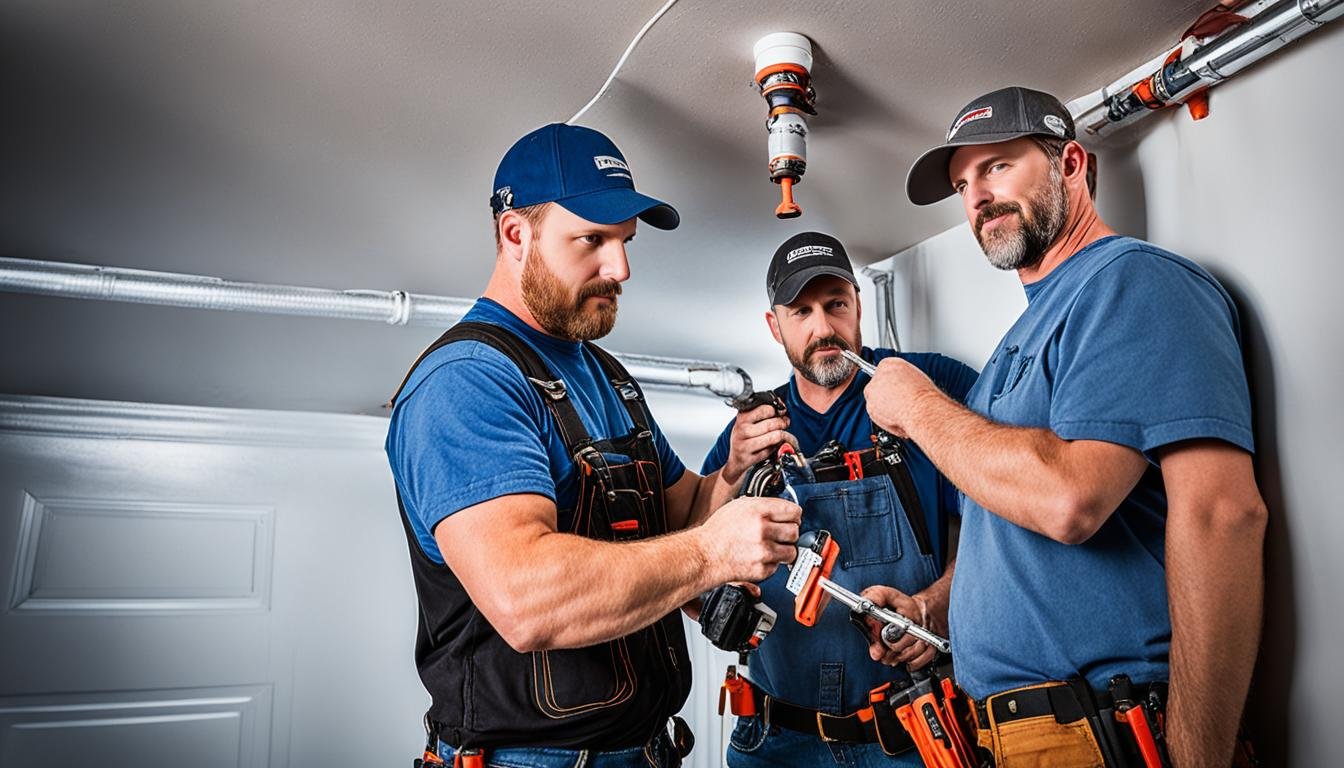
In 1738, the first valve-type flush toilet was born. This event marked the start of modern plumbing. It led to the indoor plumbing we know and love today. The journey includes the Romans and work by Thomas Crapper. It’s a story of new ideas, cleanliness, and technology.
Since its early days, plumbing has transformed our daily lives. We look at the key figures and societies who shaped our plumbing systems. By learning their stories, you’ll see why plumbing is so important in the world.
Key Takeaways
- The flush toilet was invented in 1738, marking the beginning of the modern plumbing era.
- The Roman Empire was a pioneer in developing efficient methods for transporting water, laying the groundwork for indoor plumbing.
- Thomas Crapper popularized the flush toilet in the 19th century, making it more accessible to the general public.
- Alexander Cummings invented the “S-trap” in 1775, improving the safety and hygiene of indoor plumbing systems.
- Plumbing codes in the United States were established to standardize the design and installation of plumbing systems.
The Roman Empire’s Groundbreaking Plumbing Innovations
The Roman Empire made huge strides in plumbing and sanitation infrastructure. They were the first to introduce many systems. Without their advancements, our modern ways of managing water and waste wouldn’t be the same.
Indoor Plumbing and Sanitation Infrastructure
The Roman Empire set up a vast system for plumbing and sanitation. They were pioneers in creating sewer systems, public toilets, and bathrooms in homes. This helped get rid of waste and provide clean water to millions living across the empire.
Aqueducts and Lead Piping
Rome also had aqueducts to bring fresh water from far away into their cities. These amazing structures are still here today. They moved water over 60 miles relying on gravity. Additionally, they used lead pipes to take water into houses, though this was later understood to be harmful.
The achievements of the Roman Empire in plumbing, such as their aqueducts and lead piping, are still praised today. Their systems for sanitation improved life for many. They paved the way for future advancements in plumbing technology.
“The Romans were true pioneers in the field of plumbing, creating systems that were centuries ahead of their time. Their legacy continues to influence and inspire plumbers and engineers today.” – Dream Home Digest
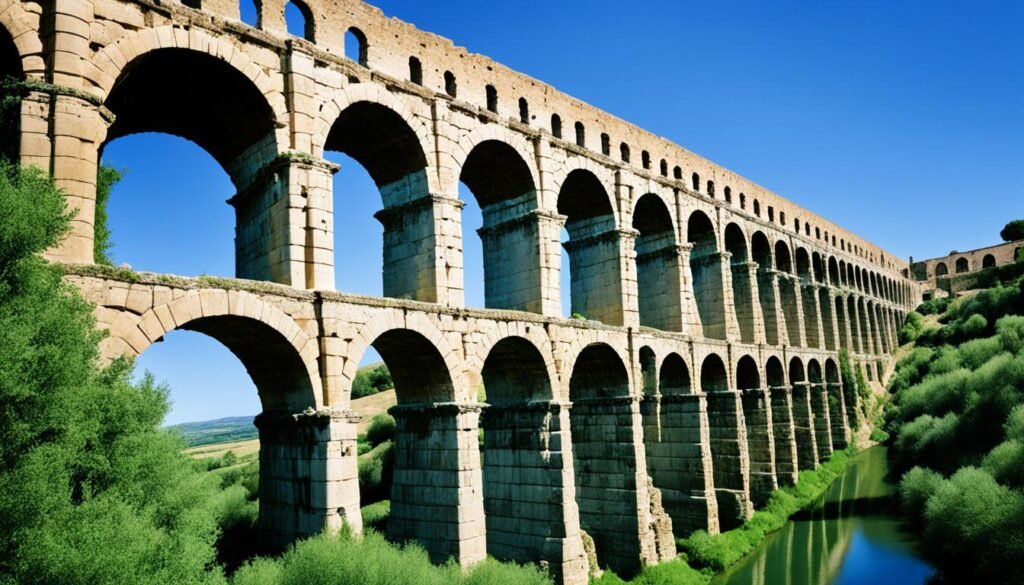
Pioneers of Modern Plumbing
The development of modern plumbing owes a lot to historic figures. People like Thomas Crapper, Alexander Cummings, and Lewis Howard Latimer played important roles. They shaped the plumbing we use today.
Thomas Crapper didn’t create the flush toilet, but he made it better in the late 1800s. His improvements drastically improved health by reducing diseases like cholera. Crapper’s work in designing toilets made a big difference.
As far back as the late 1700s, Alexander Cummings had developed the first flushing toilet. This invention set the stage for Thomas Crapper‘s advancements. Lewis Howard Latimer, an engineer, also contributed to modern plumbing. He designed a better water closet.
Thanks to these pioneers, plumbing is now convenient and hygienic. They paved the way for modern advances like plastic plumbing, sensor toilets, and strict codes. Their work is the foundation of today’s plumbing systems.
Their contributions are very significant. They made clean water and sanitation accessible. This improved public health and lowered waterborne disease rates globally. The plumbing field continues to grow, thanks to these pioneering ideas.
“The contributions of Thomas Crapper, Alexander Cummings, and Lewis Howard Latimer have had a lasting impact on the way we live and work, transforming plumbing into the efficient and hygienic systems we rely on today.”
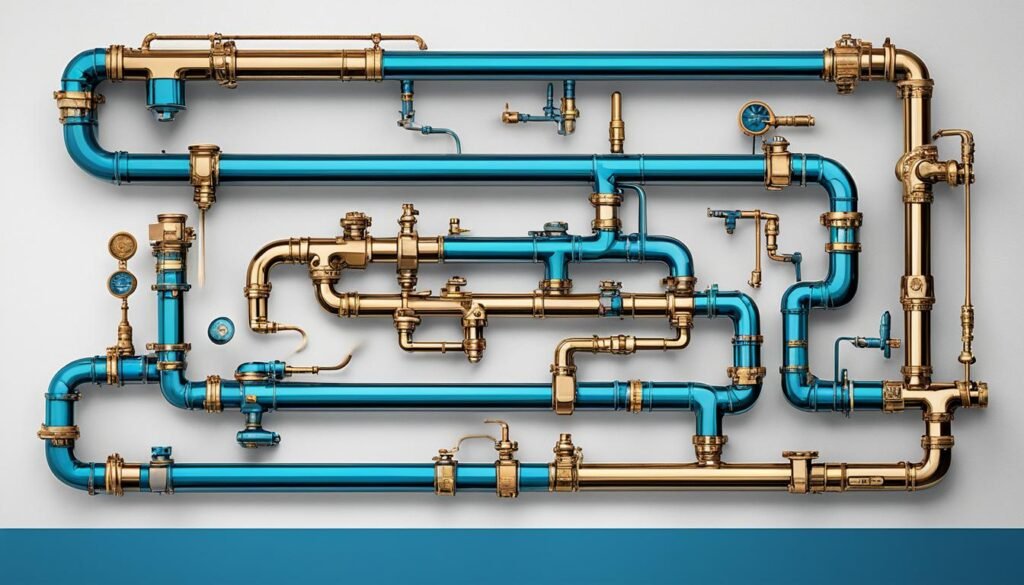
Even now, there’s more work needed in plumbing. Sadly, over 1 million people in the U.S. don’t have basic plumbing. Worldwide, more than 2 billion lack good sanitation. The spirit of these pioneers pushes us to do better. Their work inspires us to make sure everyone has clean water and sanitation.
Ancient Civilizations’ Contributions to Plumbing
The Romans are often seen as the first to use advanced plumbing. However, other ancient groups also played a big part. The Minoans in Crete, for example, built an indoor plumbing system long ago. It had a toilet that flushed, drains, and a simple way to deal with waste. Archaeologists have found proof that the Mayans used smart plumbing and watering systems, too. This hints that they knew how to make water move under pressure.
The start of Minoan Plumbing and Mayan Irrigation changed the world. These groups learned to use Pressurized Water well. They came up with good ways to handle Sewage Disposal. Their work paved the way for how we do plumbing now.
| Ancient Civilization | Plumbing Innovations | Significance |
|---|---|---|
| Minoan (Crete) | – Indoor plumbing system – Flushing toilet – Drainage and sewage disposal | One of the earliest known examples of advanced plumbing systems |
| Mayan (Mesoamerica) | – Sophisticated plumbing and irrigation systems – Potential use of pressurized water technology | Demonstrated the ability to harness and distribute water resources efficiently |
Early civilizations started what has led to great plumbing today. From the local plumbers in Hemet, CA to the latest in dreamy houses in Dream Home Digest, we still see the influence of old ways. The efforts of these ancient groups are still seen in how we do plumbing now.
“The innovations of ancient civilizations in plumbing have had a lasting impact on the way we design and build our homes and cities today.”
Conclusion
The story of plumbing history is fascinating. It shows how people have always tried to improve sanitation and hygiene. We see this from long ago to now, with the start of plumbing in ancient times to the new and smart systems we use today.
Looking back, we see great thinkers and doers. They worked hard to make life better through plumbing. Their work inspires us to keep making plumbing better, with an aim on efficiency, saving water, and using smart technology.
Knowing the history of plumbing makes us value its importance more. It’s not just about fixing leaks. Plumbing touches our lives and communities in many ways. This makes us want to carry on the legacy of those who started it all. We aim to create even better plumbing for the future.
The journey in plumbing is not over. Knowing where we’ve been helps us look to the future. Let’s keep the spirit of innovation alive in plumbing. Together, we can improve life for everyone, always searching for new and better ways in plumbing.
FAQ
Who were the pioneers of modern plumbing?
What were the plumbing innovations of the Roman Empire?
What other ancient civilizations made contributions to plumbing?
How have plumbing innovations transformed public health and quality of life?
Source Links
- https://reddiplumbingwichita.com/blog/plumbing/the-history-of-plumbing
- https://www.bigbplumbing.com/blog/plumbing-pioneers-women-who-revolutionized-the-plumbing-industry/
- https://bumblebeeplumbingaz.com/the-history-of-plumbing-when-was-indoor-plumbing-invented/
- https://www.history.com/news/10-innovations-that-built-ancient-rome
- https://interestingengineering.com/innovation/19-greatest-inventions-of-the-roman-empire-that-helped-shape-the-modern-world
- https://www.romecitytour.it/blog/what-did-the-romans-invent/
- https://www.danielcordovaplumbing.com/blog/press-releases/women-pioneers-in-the-plumbing-industry/
- https://www.mainsplumbers.co.nz/origins-of-indoor-plumbing
- https://www.portapotty.net/plumbing/
- https://emergencyplumbercolumbiasc.com/the-evolution-of-plumbing-from-ancient-civilizations-to-modern-technology/
- https://lifeasahuman.com/2018/home-living/roman-plumbing-and-the-fall-of-the-roman-empire/
- https://alpinehomeexperts.com/where-did-plumbing-originate/
- https://catesheatingandcooling.com/blog/a-brief-history-of-modern-plumbing/
- https://heroesonhand.co.uk/the-pioneer-of-modern-plumbing-who-is-the-father-of-plumbing/
- https://callplumbsmart.com/flushed-with-knowledge-the-surprising-ancient-history-of-plumbing/

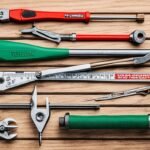


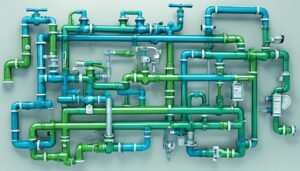

No comment yet, add your voice below!